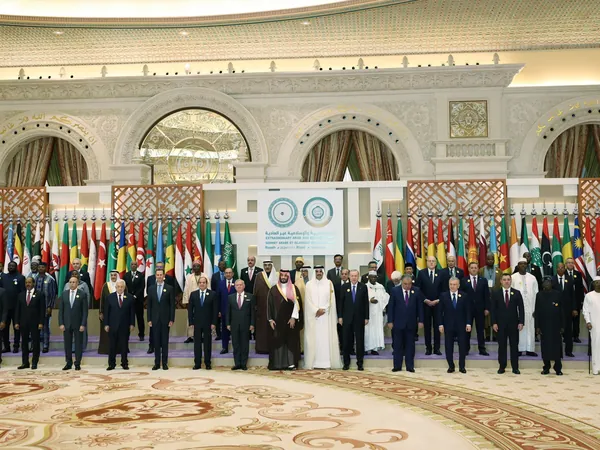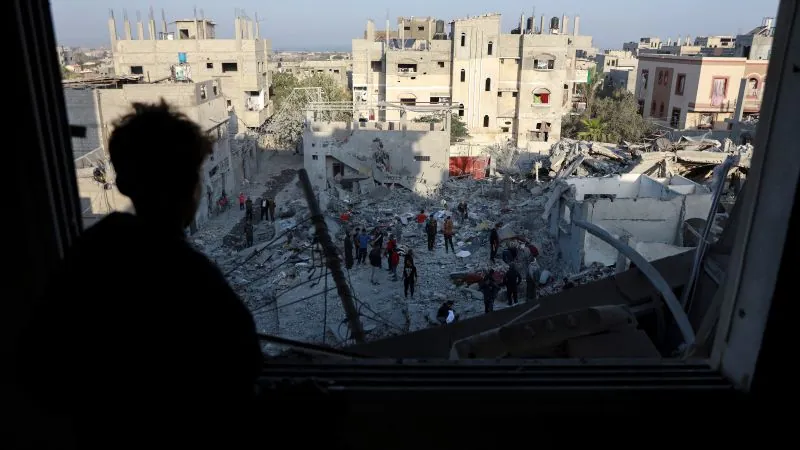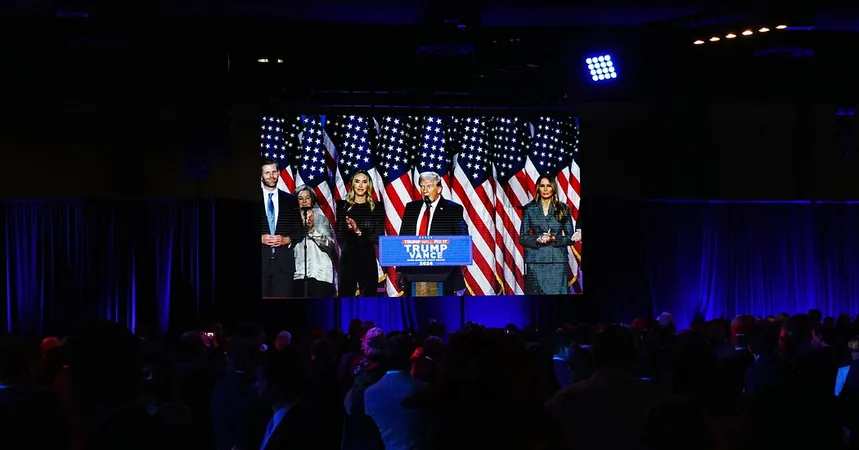
MBS Demands Urgent Ceasefire as Arab Leaders Stand United Against Israeli Aggression
2024-11-11
Author: Jia
In a powerful call for peace, Saudi Arabia's Crown Prince Mohammed bin Salman, commonly referred to as MBS, has demanded an immediate halt to Israel's military operations in both Gaza and Lebanon. This statement was made at the commencement of a significant summit of Arab and Muslim leaders held in Riyadh.
During his address to the converged representatives of the Arab League and the Organisation of Islamic Cooperation (OIC) on Monday, the Crown Prince strongly condemned the "massacre committed against Palestinian and Lebanese people" and urged Israel "to refrain from any further act of aggression." He also echoed calls for the global recognition of Palestinian statehood, highlighting the urgency of the situation.
Joining MBS in his condemnation, Ahmed Aboul Gheit, the Secretary-General of the Arab League, articulated the deep concerns shared among Arab nations. "Words cannot express the plight of the Palestinian people," he stated, noting that the current Israeli actions severely undermine efforts for lasting peace in the region. He emphasized that "only with justice can we establish enduring peace," urging the world not to ignore the violence.
Lebanon's Prime Minister, Najib Mikati, described the severe crises facing Lebanon, emphasizing the "unprecedented" existential threats posed as Israel escalates its military confrontations with Hezbollah. "Lebanon stands at a historical crossroads that endangers its present and future," he warned.
Although not present at the summit, Iranian political figures made their positions known. Iran's First Vice President Mohammad Reza Aref condemned the Israeli tactics of targeted assassinations of Hamas and Hezbollah leaders, calling them "organized terrorism." He pointed out that these actions, often framed under the guise of precision strikes, constitute nothing less than lawlessness.
Prominent leaders from the region, including Palestinian President Mahmoud Abbas, Turkish President Recep Tayyip Erdogan, Pakistani Prime Minister Shehbaz Sharif, and Nigerian President Bola Tinubu, are participating in this pivotal summit, which comes almost a year after a similar gathering where Israeli actions were denounced as "barbaric."
Despite significant rhetoric against Israel, previous summits have shown a lack of consensus on actionable responses, such as cutting diplomatic and economic ties or disrupting oil supplies. The intricacies of the alliances and oppositions within the 22-member Arab League and the 57-member OIC reflect a complex political landscape.
The implications of the recent U.S. presidential election, with Donald Trump returning to the White House, loom over the discussions. Analysts suggest this summit serves as an opportunity for regional leaders to convey their expectations regarding U.S. involvement in Middle Eastern affairs under the new administration. Anna Jacobs, a senior Gulf analyst from the International Crisis Group, noted, "The leaders are likely seeking to promote dialogue, de-escalation, and a critical stance towards Israeli military campaigns."
The ongoing conflict, which escalated dramatically following a major Hamas attack on Israel in October 2023, has resulted in a staggering toll. Over 43,600 Palestinians have been reported killed since the conflict reignited, sparking outrage and demands for international intervention amidst widespread civilian suffering. Meanwhile, Israel's military actions in Lebanon have also resulted in over 3,100 casualties since the onset of hostilities, as tensions continue to rise between Israel and Iranian-backed Hezbollah.
As the summit unfolds, the world watches closely, hoping for a glimmer of hope in an increasingly chaotic and violent landscape.



 Brasil (PT)
Brasil (PT)
 Canada (EN)
Canada (EN)
 Chile (ES)
Chile (ES)
 España (ES)
España (ES)
 France (FR)
France (FR)
 Hong Kong (EN)
Hong Kong (EN)
 Italia (IT)
Italia (IT)
 日本 (JA)
日本 (JA)
 Magyarország (HU)
Magyarország (HU)
 Norge (NO)
Norge (NO)
 Polska (PL)
Polska (PL)
 Schweiz (DE)
Schweiz (DE)
 Singapore (EN)
Singapore (EN)
 Sverige (SV)
Sverige (SV)
 Suomi (FI)
Suomi (FI)
 Türkiye (TR)
Türkiye (TR)